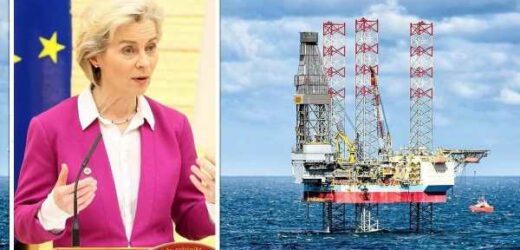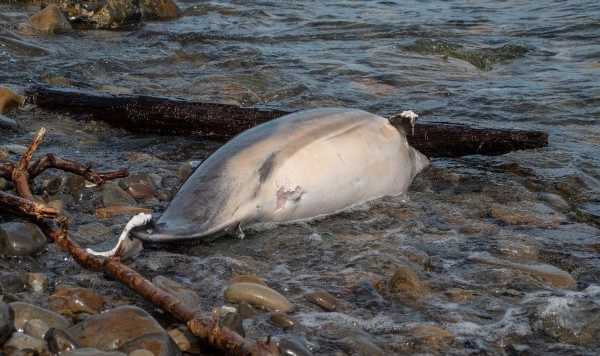UK 'hasn't invested enough' in domestic energy says Johnson
We use your sign-up to provide content in ways you’ve consented to and to improve our understanding of you. This may include adverts from us and 3rd parties based on our understanding. You can unsubscribe at any time. More info
Vladimir Putin’s control of energy exports to the EU is one of the biggest reasons why the bloc has so far been hesitant at acting against Russia. Many member states, who are heavily dependent on Russia’s oil and natural gas supplies, fear that Putin will shut off the taps of energy flowing to the continent as a retaliation against the EU. However, experts have offered the bloc an energy lifeline, arguing that Europe is currently sitting on enough gas reserves to replace over two decades of reliance on Russia.
François-Régis Mouton, the Regional Director Europe of the International Association of Oil and Gas Producers (IOGP) called on the European Union to secure its own energy supply by looking inwards, to harness the “vast reserves of gas” the continent still holds.
Writing in Euractiv, he said: “Together, the EU and Norway hold 3470 bcm of known gas reserves, equivalent to 22 years of Russian gas supplies.
“If the EU is ready to do what it takes to install 10 million heat pumps in the next five years, find an extra 50 bcm of non-Russian gas imports and produce 35 bcm of biomethane by 2030, why couldn’t it make as well the most of its known gas reserves and try to find additional ones?”


Such reserves could be vital for Europe’s transition away from Russian energy, as earlier this year the EU announced plans to end all Russian gas imports (155 bcm) by the end of the decade, and cut its dependence by two-thirds by the end of the year.
According to figures from Eurostat, the bloc produced around 100 bcm of natural gas before the pandemic in 2019.
This amount, which was equivalent to about 20 percent of its demand, fell sharply over the next few years, to 50 bcm in 2021.
While the demand of energy has picked up over the past year and countries end their pandemic induced lockdowns, the bloc has turned towards Russia, and now imports 40 percent of its gas from Moscow.

Mr Mouton added: “Home to one of the world’s oldest and most mature hydrocarbon basins, the North Sea, Europe has seen its production decline steadily over the years, due to natural depletion (or to local consideration as for the Groningen field in the Netherlands).
“As Europe’s historic fields slowly emptied, EU leaders kept reaffirming the transitional role of gas in their rhetoric but didn’t make much effort to sustain exploration on the continent, lowering chances of finding new resources while natural gas consumption remained relatively stable.”
Despite these reserves, the EU Commission has still appeared to bow to Putin’s demands to pay for Russian gas in rubles, boosting its economy.
DON’T MISS:
WHO issues dire warning as cases of deadly Monkeypox confirmed in UK [REPORT]
Archaeology breakthrough after ‘astonishing’ find in Petra [REVEAL]
Putin’s invasion takes another blow as rocket launch fails [SPOTLIGHT]


The bloc has offered companies a way to pay for Russian gas without breaching any European sanctions, while also satisfying the Russian President’s demand for payment in rubles.
Last month, Putin warned that unless European nations open up ruble accounts in Russian banks, Moscow will terminate its gas contracts.
This is an attempt by the Kremlin to boost Russia’s economy after Western sanctions hit the country hard.
Source: Read Full Article


